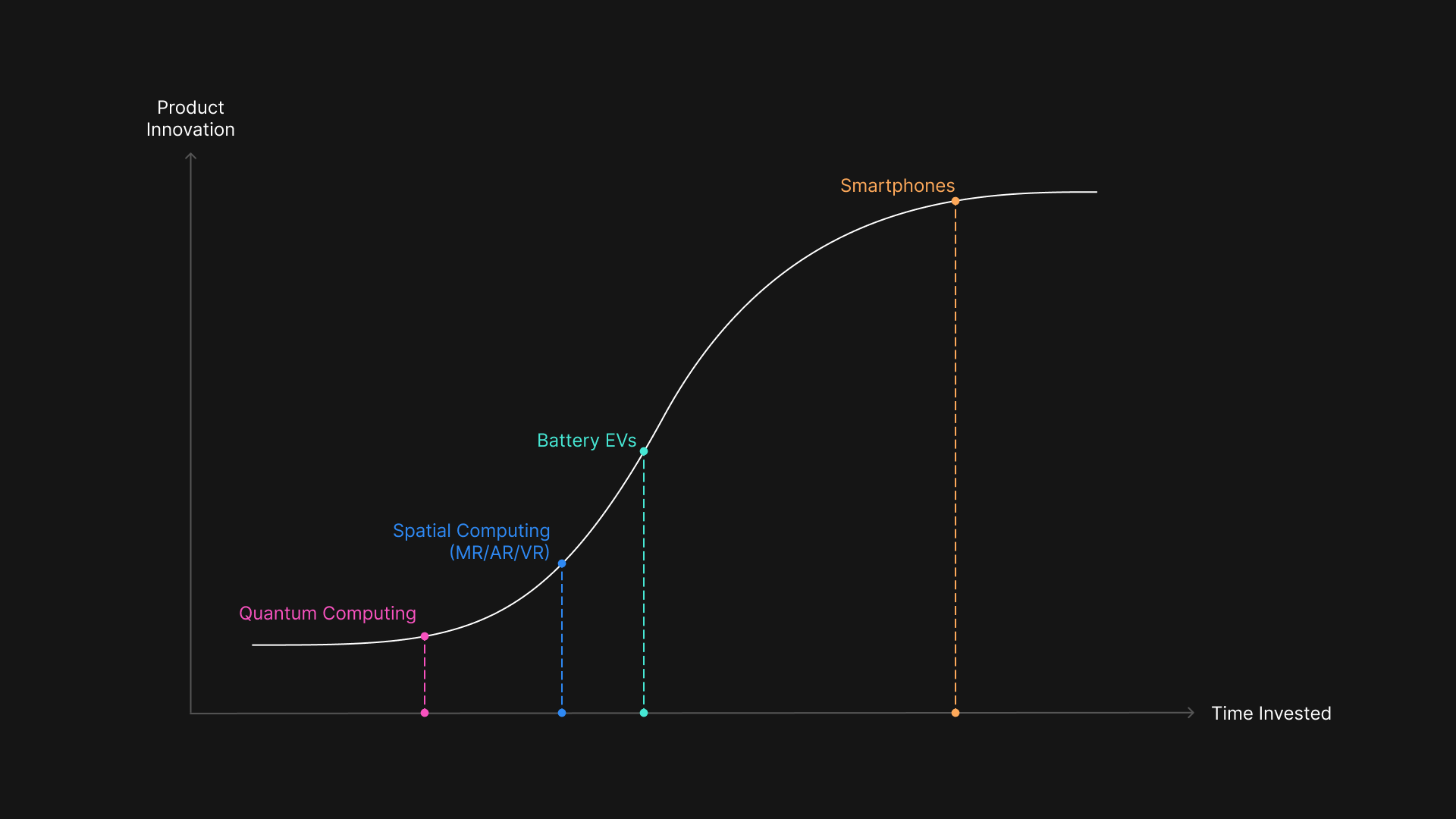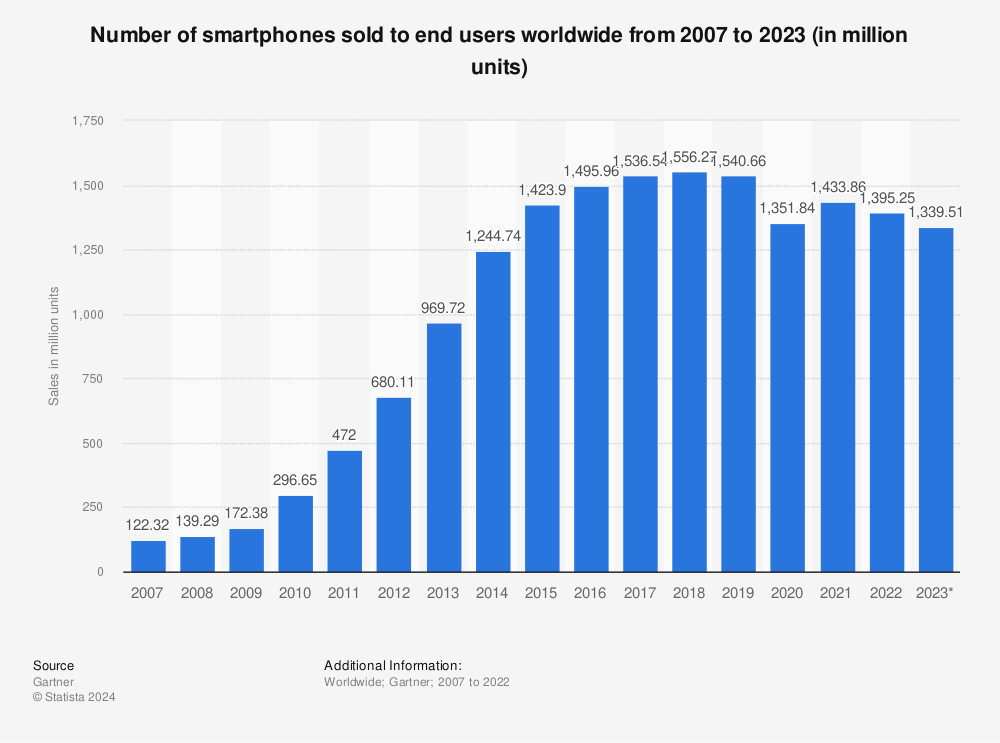AI & My Existential Crisis
Generative AI is also generating anxiety
You've probably heard about ChatGPT, LLMs, OpenAI, etc. by now. Regardless of where you stand on the AI movement, one thing is undeniable: the growth and breakthroughs have been staggering and borderline overwhelming. It feels like we're barely able to catch our breath before the next big thing hits[1]. At least it does to me.
I still remember when ChatGPT was announced (almost a year and a half ago). I was blown away. I was shell-shocked by how different of an experience it was. I couldn't even find the words. It made me wonder—
At that time, the capabilities of what seemed like just a simple text box were beyond my comprehension. It could understand, code, guide, correct, and much more—in seconds! I wanted to write about it then, but I let it sink in as time passed. It became clear that this product was not only impressive but also unlocked a plethora of possibilities for us to explore. However, the initial excitement eventually waned, and it felt like we had just another tool to use. There were suddenly fancy new tools like GitHub Copilot, DALL-E, Midjourney, etc, to improve our workflows.
Many people built many things. Some failed, and some were killed by OpenAI itself, but very few have succeeded and have made a lot of people a lot of money. After observing how the field was progressing, I realized it didn't warrant a post like this.
I don't mean to sound alarmist or anything, but things have been moving at an incomprehensible pace. Just a few days ago, OpenAI once again shocked the world with its text-to-video model, Sora, which triggered my existential crisis. I am stumped and have this sinking feeling that wasn't there earlier.
The Logistic Curve
Disruptive new technologies usually follow a logistic curve: there's a gradual initial growth phase as pioneers address significant issues, followed by an explosive period of exponential growth driven by widespread adoption and technological advancements.
As the market becomes saturated with various products and services leveraging the technology—some genuine, others dubious—fierce competition ensues to develop newer, superior offerings. Eventually, a saturation point is reached where the feasibility of further innovation diminishes, leading to a plateau in progress and a decline in returns on investment.

Innovation vs Time Invested graph. As the technology matures, the time investment required to innovate follows a logistic curve.
For instance, consider the evolution of the smartphone, which began with the groundbreaking introduction of the iPhone in the late 2010s[2]. Despite its initial limitations, such as missing basic features like the clipboard or the selfie camera, the smartphone market experienced a surge in competition, peaking around 2018 before reaching a state of relative stability and stagnant to negative growth YoY.
In hindsight, the iPhone and the internet together were the first significant signs of how many industries would be changed or entirely destroyed by this new emerging technology. Not just the phone industry but the gaming industry, cinema, libraries, shopping malls, commerce, the postal service, journalism, the entire media industry, and basically every other industry you can think of.

Smartphone units sold per year. Shows a peak in 2018 followed by stagnation.
iPhone wasn't the first internet device the PCs had it much earlier. However, it was the first major one that millions of non-technical people used by choice. The first one to get mass-media attention. As people got used to apps and the internet, a revolution started. Interestingly, many industry veterans did not see it coming at the time.
Even if they did see it coming, they couldn't have predicted just how big of a paradigm shift it would be and the world that would follow. The world I grew up in. The world is now comfortable with smartphones, the internet, social media, etc.
Competition and Concern
OpenAI's models have spawned a bunch of new competitors that are trying to expand what's possible with the technology they have in their hands; Bard (now Gemini), LLaMa, Perplexity, Mistral, and Midjourney to name a few. There has been a breaking story every single day since ChatGPT was announced.
I have been using assitive AI tools for coding for years--like GitHub Copilot and Tabnine before that. I have also tried ChatGPT and Bard in my workflows. Writing trivial code, summarising articles, explaining topics, and much more is excellent. But don't be overly impressed just yet, when I try to get these tools to solve a mildly complex problem, they struggle and sometimes outright fail. But that's not why I keep going back to them. Tools like ChatGPT are accessible and take about as much time to get to a solution as it takes to surf documentation and skim through YouTube tutorials—and it's much more straightforward.
AI isn't a niche field that only the tech-bros have heard about anymore. The other day, my cab driver was talking about ChatGPT with me and told me how easy it was to write an application for him. He wasn't a nerd tuned into the tech world like you and me—but he could use it effortlessly. Non-technical people are beginning to use the technology, precisely because people are finding about it organically. This is a big marker that a revolution might be brewing.
The growth of OpenAI itself has been nothing short of astonishing. The previously mentioned model, Sora, can generate video snippets from text that look eerily real. As if filmed by a human.
I don't even want to get into the grey areas regarding the LLMs, training data, and their output. The repercussions of our unpreparedness might cause irreversible damage. For example, here in India, the videos generated by Sora can easily be used to spread misinformation regarding the upcoming General Elections[3]
This is precisely what scares me; it gives me a feeling of dread and existentialism. All the new stuff being released by all these companies lies somewhere on the logistic curve—and I don't know where.
My Existential Dread
If we are nearing the plateau on the AI logistic curve, that's great! We will have some fantastic tools at our disposal that will revolutionize how we work. It won't take away a lot of jobs as the outputs are not precisely like a human and will just make us more efficient overall—just as calculators did.
If we are at the inflection point, we still have a lot of cool and mindblowing stuff yet to witness, but it would still require humans to be utilized at the maximum potential. An example of this would be computers and digital computation in 1970s. People working with computers back then could not have imagined that we would get something like social networks or the internet. What if, for us the internet equivalent for AI is automation, or an assistant—a faithful assistant—like Iron Man's Jarvis or Interstellar's TARS.
However, if we are just getting started, things are about to change drastically. Just thinking about it gives me a pit-in-the-stomach feeling. What if we are in the same phase as the iPhone—where it was mocked and felt prototype-ish? What if we are not even comprehending how AI will change our world? What if I write these AI models off like Steve Ballmer did in the case of the iPhone?
I don't want to be left behind. I like the field I am in, and I am comfortable in the current world. If we are indeed at the beginning of the curve, this time, I am on the wrong side of it. I was comfortable when the smartphone revolution happened—but I don't know if I feel the same about AI. Initially, I thought I was scared and worried because it felt new and strange. I had never seen anything behave so close to a human yet so accessible. But that's not where it is coming from. This is where the fear stems from—the possibility that I will suddenly lose touch with what's happening and miss what's coming next.
Or perhaps nothing will happen. Nothing will change, and I will be here writing another post referencing this one in the future, highlighting how wrong I was. How alarmist I sounded for something that, in hindsight, will feel highly trivial. One thing, though, is that I am not in favour of banning or regulating the whole AI field out of existence. It is a field that excites me but also scares me because what if I miss keeping up with it?
That's it. I have realized that my anxiety and dread are the result of my being comfortable in my world—a world that has been stable and stagnant to me for years. And I realized—that it might all change without me noticing. The world will move on, and I will be left behind.
No AI was used at any stage while writing this post.
Interesting Links
[1] The LLM Index: This website is great to learn about LLMs as they release and keep track of the developments in the field in general. The growth is astonishing.
[2] How Apple’s iPhone changed the world, Vox Media - This article is a great read about the impact of the iPhone over the decade after its release.
[3] How OpenAI is approaching 2024 worldwide elections, OpenAI - OpenAI highlights the risk and importance of mitigation of abuse of models released to the public. Interesting read regarding the impact of AI and safety.